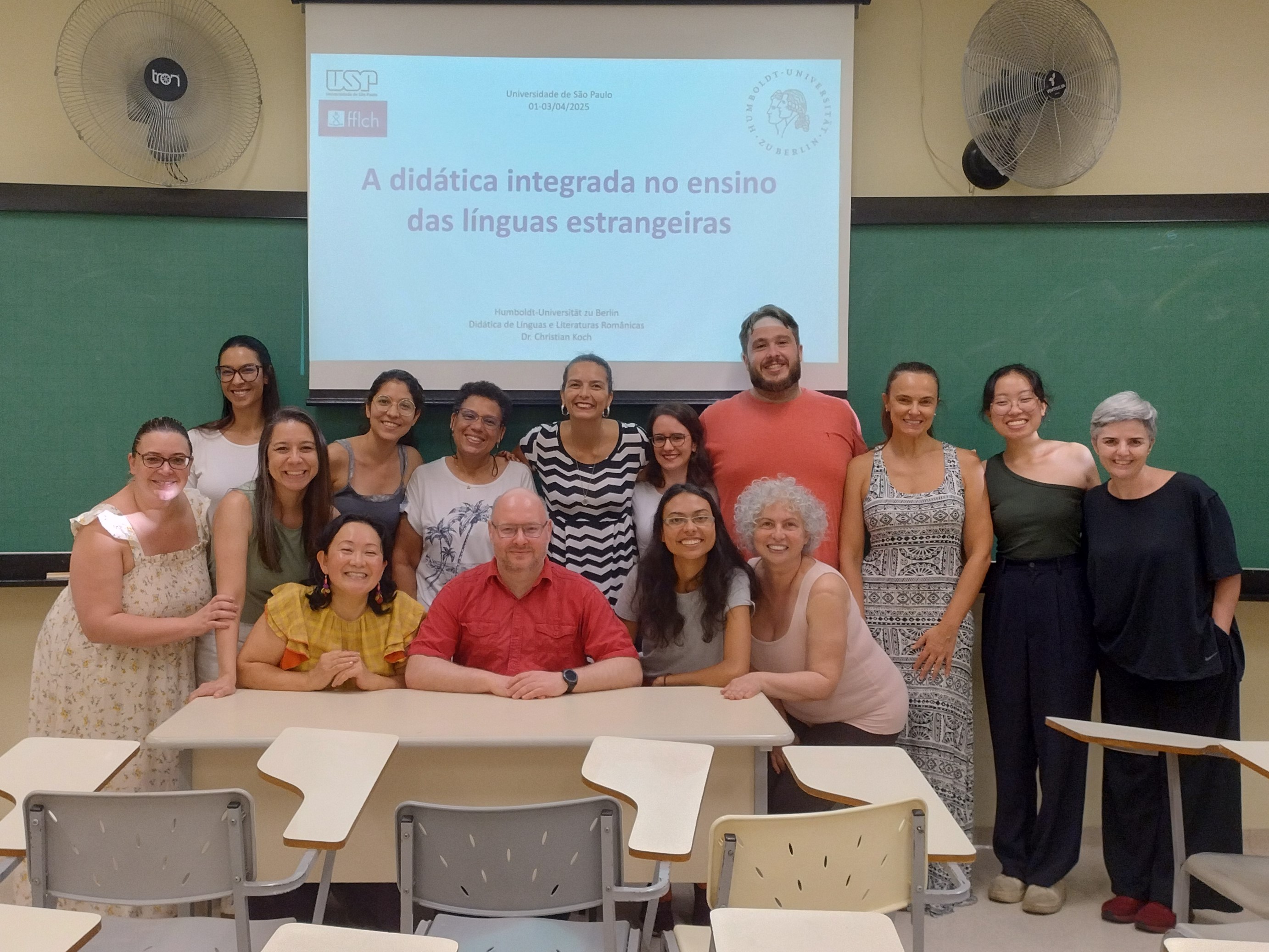
As part of the strategic partnership between the Humboldt-Universität zu Berlin and the Universidade de São Paulo, I was able to travel to Brazil and work on the approach of integrated didactics for Brazilian contexts in a postgraduate seminar. A total of 14 Masters and PhD students took part in the seminar, focusing on different target languages. The languages covered were English, Spanish, French, Italian, German, Chinese, Japanese and Armenian. On the first day, we discussed general approaches to plurilingual education and the added value of cross-linking languages in education. The second day was dedicated to comparing the structural foundations of different languages, where we were able to benefit from the wide range of Indo-European and East Asian languages represented in the classroom. Participants emphasised that this was the first time they had consciously compared differences such as articulatory challenges in different target languages. The third day focused on migration contexts and the integration of home languages in the contrast between Europe and Brazil. Historically, Brazil has been characterised by large migratory flows, which is reflected in the strong presence of languages such as German, Italian and Japanese, as well as Armenian, which can also be studied as a subject in São Paulo.
At the seminar, I had the opportunity to present our ongoing ECML project and to arouse curiosity about its further development. A presentation was given to the staff of the various language departments to familiarise them with integrated didactics. There are plans to continue the exchange in the form of a long-term cooperation for Romance and Germanic languages between Berlin and São Paulo.
Author: Christian Koch, ECML project coordinator “A toolkit for implementing integrated didactics in language education”
- ECML project website “A toolkit for implementing integrated didactics in language education” (2024-27) (available in English and French): www.ecml.at/integrateddidactics